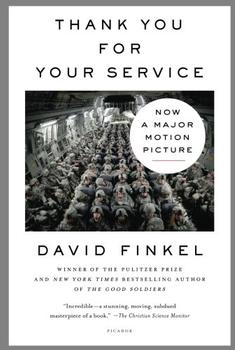Summary | Excerpt | Reviews | Beyond the Book | Readalikes | Genres & Themes | Author Bio

Critics' Opinion:
Readers' Opinion:
First Published:
Oct 2013, 272 pages
Paperback:
Sep 2014, 272 pages
 Book Reviewed by:
Book Reviewed by:
Kim Kovacs
Buy This Book
Instead of ignoring him, though, or abusing him, the old man would pile his bruised grandson into his Cadillac and take him for long drives. Just the two of them, keeping each other company. He never said a word, except to swear at other drivers. "You fucking bastard," he would scream, and then keep driving in silence, smoking incessantly. At home, he didn't talk, either. If he was reading the newspaper and wanted to show someone something, he would point to it with his middle finger, always his middle finger, and slide it across the table.
That someone was usually Adam. His grandfather was his first experience with war wounds, and Adam grew to love him, and soon after the old soldier died, he joined the army and became a great soldier and now has his own list of places he has been.
United States—born, molested, beaten, abandoned, girls. wow.
Iraq—We fought a tough battle there.
Interstate 70 in Kansas—"Hi. This is Adam Schumann," he says on the phone now, Topeka nearing, calling to confirm his appointment at the VA. He listens for a moment and hangs up.
"The appointment's not till tomorrow," he says to Saskia.
She shoots him a look, starts to say something, doesn't.
So he says it for her.
"Goddamn it."
They ride in silence for a few miles.
"Fuck," he says. "Fuck."
"Well it's not my fault," she says. "Maybe you should write shit down." She gets off the interstate at the exit for the hospital. Maybe they can worm their way in somehow. "Why didn't you call this morning?"
"I was sure it was today," Adam says. He rubs his forehead. He slaps his head. He drums his fingers on his leg.
There's the hospital in the distance. Saskia slams on the brakes at an intersection in order to avoid a woman crossing the street against the light. "Dumb bitch," she explodes.
"God, I can't believe I messed everything up," Adam says.
At the hospital now:
They pass through an entranceway lined with survivors of previous wars in wheelchairs and "Proud to Be an American" T-shirts. "It just stinks like old people and smoke," Saskia says. They walk down a hallway behind a woman who is giving a tour to two men. "The guys from Vietnam are so expressive, but the new ones, from Iraq and Afghanistan, go straight to violence and suicide," the woman says. "Mm-hmm," one of the men says. One of the worst things about Adam's war, the thing that got to everyone, was not having a defined front line. It was a war in 360 degrees, no front to advance toward, no enemy in uniform, no predictable patterns, no relief, and it helped drive some of them crazy. Here, though, in this new war of Adam's, there is a front line: this hospital. This old, underfunded, understaffed hospital, which nevertheless includes a compassionate receptionist who says she will see what she can do and a doctor who is underpaid and overwhelmed and says that of course he can squeeze Adam in. So in Adam goes, preceded by all of the previous histories dictated about him over these two years, rendered as only doctors and interpreting bureaucrats can:
Topeka VAMC reports you were clean and appropriately and casually dressed. Your psychomotor activity was unremarkable. Your speech was clear and unremarkable. Your attitude toward the examiner was cooperative, friendly and attentive. Your affect was expressive. Your mood was depressed and irritated. Your attention was intact. You were fully oriented to person, place and time. Your thought process was unremarkable, but your thought content was distressed, and irritated with others. You do not have delusions. As to judgment: you understand the outcome of behavior. Your intelligence was average. As to insight: you understand that you have a problem …
Saskia waits outside. Sometimes she goes in with him, sometimes not. She wonders if this doctor will be able to speak understandable English, unlike the last one. She wonders if he will look Adam in the eye as he asks his questions or keep his back turned as he types Adam's responses into a computer. She is sure she knows what the doctor will say: Adam is wounded. Adam is ill. Adam needs to stay on his medications. Adam deserves the thanks of a grateful nation. She is seated near a sign for a suicide hotline that says, "It takes the courage and strength of a warrior to ask for help," but she has her own saying at this point: "How much can you pity a person who cannot help himself?"
Copyright © 2013 by David Finkel




A library is thought in cold storage
Click Here to find out who said this, as well as discovering other famous literary quotes!
Your guide toexceptional books
BookBrowse seeks out and recommends the best in contemporary fiction and nonfiction—books that not only engage and entertain but also deepen our understanding of ourselves and the world around us.